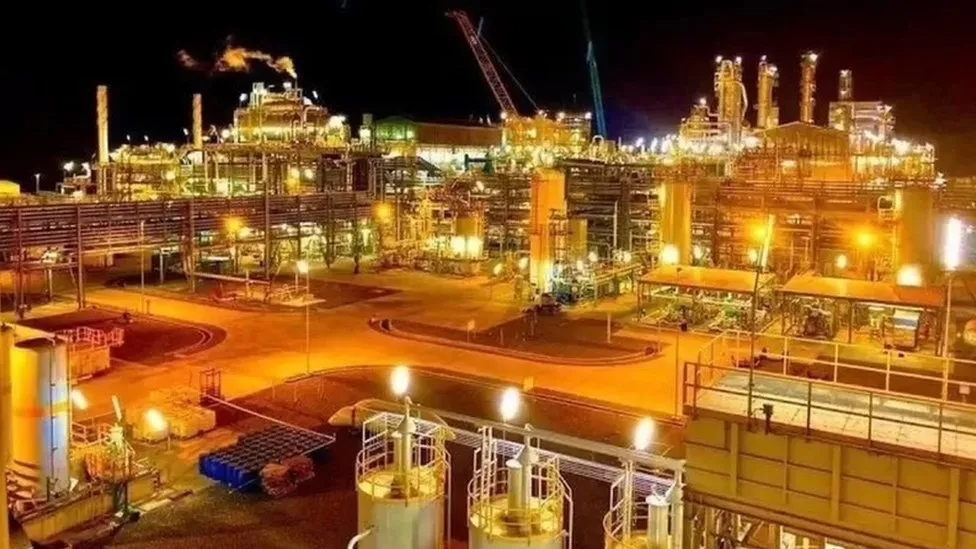The delivery of a million barrels of crude oil to huge new refinery in Nigeria marks a major milestone in the process towards the country being able to produce fuel itself.
For years, the oil-rich nation has not been able to refine the product.
Importing refined oil has imposed some extra costs on the country.
It is not clear when the mammoth Dangote refinery will start working but once running, it will be a big step in reaching energy self-sufficiency.
The delivery of the first one million barrels of crude will be followed by five million more, which should then allow the plant to begin producing fuel.
When fully operational, the $19bn (£15bn) facility in Nigeria’s commercial hub, Lagos, is predicted to produce about 650,000 barrels per day.
It will begin by making diesel, aviation fuel and liquefied petroleum gas (LPG) before progressing to the production of petrol.
Africa’s richest man and president of the Dangote Group, Aliko Dangote, said on Friday that the “focus over the coming months is to ramp up the refinery to its full capacity. I look forward to the next significant milestone when we deliver the first batch of products to the Nigerian market.”
The company boasts it will be eventually able to provide for 100% of Nigeria’s requirements of all refined product and also have surplus for export.
The continent’s largest economy, and one of its largest oil producers, has faced challenges in the supply of fuel, including foreign currency shortages, which have contributed to the frequent bouts of scarcity in the country.The cost of fuel has also become a major political issue.
For years, the price had been subsidised – one of the few perks that many Nigerians had felt that they got from the state.
But the subsidy cost the government a lot of money and this year the newly elected President, Bola Tinubu, removed it. This led to an increase in fuel prices of over 400%.
Although labour unions have pressured the government to reverse its decision and alleviate the plight of most Nigerians, President Tinubu has maintained that it was a move that had long-term benefits.
In November, the government said it had saved over $1.8bn between June and September this year through the removal of the subsidy which will be channelled into social development projects.
